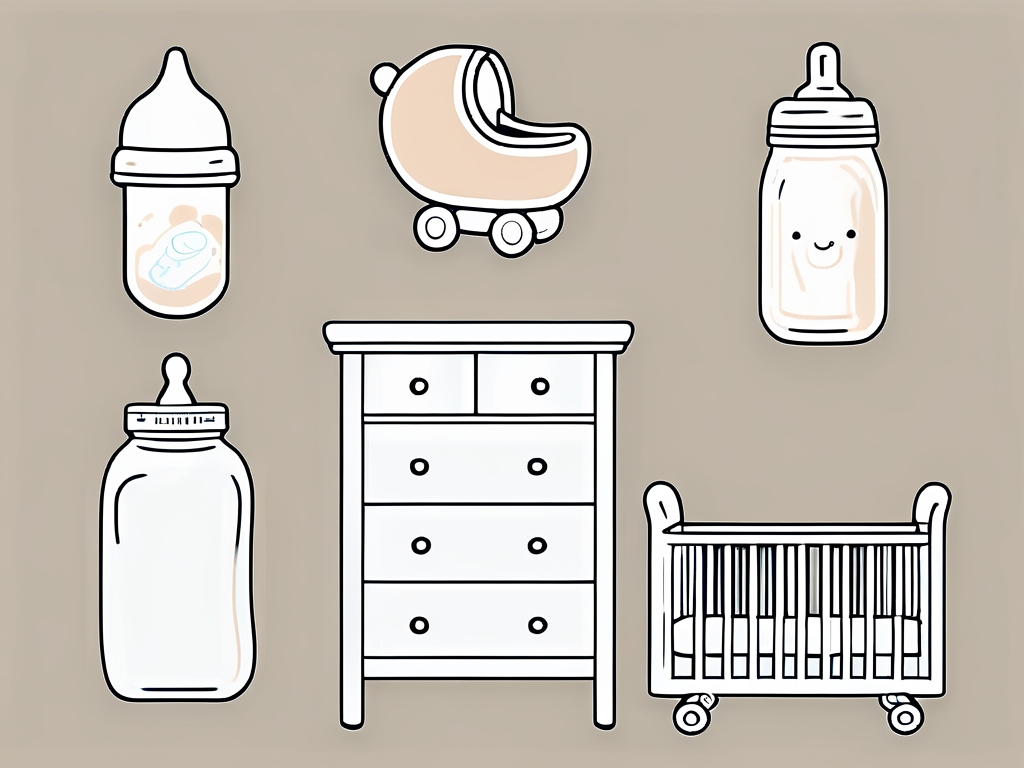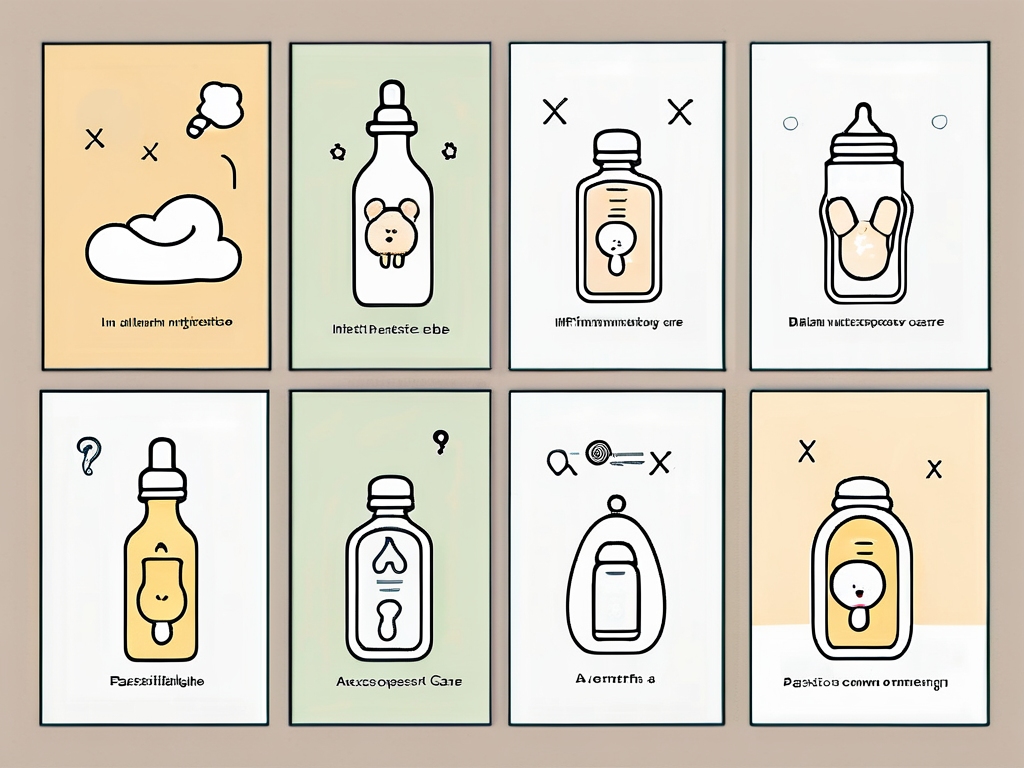Infant care plays a crucial role in the overall development and well-being of a child. Understanding the basics of infant care is essential for every parent and caregiver. From nutrition to hygiene, sleep, and parental involvement, each aspect contributes significantly to a baby’s growth. In this article, we will delve into the importance of basic infant care and debunk common misconceptions surrounding it.
Understanding the Basics of Infant Care
The first step in providing proper infant care is comprehending the fundamental aspects that contribute to a baby’s overall health. Nutrition, hygiene, and ensuring adequate sleep are paramount in this journey.
When it comes to infant care, there are additional factors to consider beyond the basics. One crucial aspect is early childhood development, which involves activities and interactions that promote a baby’s physical, cognitive, and social-emotional skills. Engaging in tummy time, reading to your baby, and playing with age-appropriate toys are all essential for fostering their overall development.
The Role of Nutrition in Infant Care
Nutrition forms the foundation of a baby’s growth and development. Breastfeeding or formula feeding, along with introducing solid foods as per the appropriate schedule, provides essential nutrients for their growing bodies. It is vital to consult with healthcare professionals to ensure the right dietary plan for your infant.
Furthermore, introducing a variety of foods rich in different nutrients is key to broadening your baby’s palate and ensuring they receive a well-rounded diet. By offering a rainbow of fruits and vegetables, lean proteins, and whole grains, you can help instill healthy eating habits from a young age.
Importance of Hygiene and Cleanliness
Hygiene practices are indispensable in infant care as they prevent infections and promote well-being. Regular bath time, proper diaper changing techniques, and maintaining a clean and safe environment are crucial for safeguarding an infant’s health. By implementing adequate cleanliness measures, parents and caregivers can minimize the risk of illnesses and keep the baby comfortable.
In addition to basic hygiene practices, it’s important to be mindful of allergens and irritants that may come into contact with your baby’s skin. Choosing gentle, hypoallergenic products for bathing and laundry can help prevent rashes and skin sensitivities, ensuring your baby’s skin remains healthy and happy.
Ensuring Adequate Sleep for Infants
Sleep plays a vital role in an infant’s growth and development. Creating a conducive sleep environment, establishing a bedtime routine, and following safe sleep practices significantly contribute to a baby’s overall well-being. Sufficient sleep aids in cognitive development, enhances memory, and promotes emotional stability.
Moreover, understanding your baby’s sleep cues and patterns can help you establish a consistent nap schedule that aligns with their natural rhythms. By providing a calm and soothing bedtime routine, you can signal to your baby that it’s time to wind down and prepare for a restful night’s sleep, setting the stage for healthy sleep habits in the long run.
The Impact of Infant Care on Development
Proper infant care not only focuses on meeting the basic needs but also has a profound impact on various areas of a child’s development, including cognitive, physical, and emotional aspects.

Infant care is a multifaceted task that involves not only meeting the physical needs of a baby but also nurturing their cognitive and emotional development. It is a crucial period in a child’s life where the foundations for future growth and learning are laid.
Cognitive Development and Infant Care
Engaging infants in stimulating activities, such as reading, talking, and interactive play, positively influences their cognitive development. Responsive and loving interactions foster neural connections, language skills, and problem-solving abilities, laying a strong foundation for their future learning.
Furthermore, exposing infants to a variety of sensory experiences, such as different textures, sounds, and colors, can enhance their cognitive development. These early sensory inputs help in shaping the way infants perceive and interact with the world around them.
Physical Growth and Infant Care
Adequate nutrition, regular health check-ups, and opportunities for physical activity contribute to a baby’s physical growth and motor development. Tummy time, encouraging crawling and walking, and providing safe toys aid in developing strength, coordination, and gross motor skills.
In addition to physical activities, ensuring a safe and stimulating environment for infants to explore is essential for their physical development. This exploration not only enhances their motor skills but also builds their confidence and curiosity about the world.
Emotional Development and Infant Care
Infant care significantly impacts a child’s emotional well-being. Responsive caregiving, establishing secure attachments, and providing a nurturing and loving environment foster emotional development. By understanding and meeting an infant’s emotional needs, parents and caregivers create a strong foundation for healthy relationships later in life.
Moreover, creating consistent routines and boundaries for infants can help in building their sense of security and trust. Predictability in caregiving practices can instill a sense of stability and emotional resilience in infants, which is crucial for their overall emotional development.
Common Misconceptions about Infant Care
Unfortunately, there are several misconceptions surrounding infant care that can lead to confusion and anxiety among parents and caregivers. Let’s address some of these myths and provide clarity on important aspects of infant care.

When it comes to infant care, there is a wealth of information available, but not all of it is accurate. It’s essential for parents and caregivers to sift through the myths and misconceptions to provide the best care for their little ones. By staying informed and seeking guidance from reliable sources, you can navigate the world of infant care with confidence and ease.
Debunking Myths about Feeding
One common myth is that babies should be fed on strict schedules. However, it’s important to follow an infant-led feeding approach, responding to their hunger cues and recognizing their unique feeding patterns. Additionally, introducing solid foods at the appropriate time and using safe feeding techniques promote healthy eating habits.
Feeding your infant is not just about providing nourishment; it is also a bonding experience that fosters a strong connection between parent and child. Taking the time to feed your baby with love and attention can have long-lasting positive effects on their overall well-being and development.
Clearing Confusion about Sleep Patterns
Many parents worry about their infant’s sleep patterns, often comparing them to those of other babies. It is crucial to understand that every baby’s sleep patterns are different, and what works for one may not work for another. By following safe sleep practices, providing a consistent bedtime routine, and creating a serene sleep environment, parents can support healthy sleep habits.
Sleep is a vital component of an infant’s growth and development. Creating a peaceful and soothing bedtime routine can help signal to your baby that it’s time to rest, promoting better sleep quality and overall well-being. Remember, each baby is unique, so finding the right sleep routine may require some trial and error.
Addressing Misunderstandings about Infant Interaction
There is a misconception that infants do not require significant social interaction. However, research suggests that babies thrive with responsive and interactive caregiving. Engaging in meaningful conversations, playing, and showing affection are crucial for their social and emotional development.
Interacting with your infant not only strengthens your bond but also lays the foundation for their future social skills. Babies are constantly learning and absorbing information from their environment, making positive interactions essential for their cognitive and emotional growth. So, don’t underestimate the power of talking, singing, and playing with your little one – it’s shaping their world in more ways than you know.
The Role of Parents in Infant Care
Parents play a pivotal role in their child’s infant care journey. Involvement, both physically and emotionally, creates a nurturing and supportive environment for the baby’s overall well-being.

Parental Involvement and Infant Health
Active parental involvement, including regular check-ups, vaccinations, and actively following the recommended healthcare practices, aids in maintaining an infant’s health. Timely medical interventions and staying informed about the latest research contribute to the child’s overall well-being.
For instance, parents who actively engage in their child’s healthcare journey are more likely to notice any changes in their baby’s behavior or physical well-being. This heightened awareness allows them to promptly seek medical attention, ensuring that any potential health issues are addressed early on. Moreover, parents who stay informed about the latest research and medical advancements can make informed decisions regarding their child’s health, ensuring that they receive the best possible care.
Balancing Work and Infant Care
Many parents face the challenge of balancing work and infant care responsibilities. By establishing a support system, effective time management, and open communication with employers, parents can navigate this aspect effectively. Flexibility, seeking help when needed, and maintaining self-care routines strengthen the parent-infant bond.
It is important for parents to establish a support system that includes family members, friends, or trusted caregivers who can lend a helping hand when needed. This support system not only provides parents with the necessary assistance but also allows them to take breaks and recharge, reducing stress and promoting overall well-being. Effective time management is also crucial in balancing work and infant care responsibilities. By prioritizing tasks, setting realistic goals, and delegating when possible, parents can create a schedule that allows them to fulfill their work obligations while still being present for their child.
The Importance of Parental Self-Care
Self-care is an essential aspect of infant care that often goes overlooked. Parents need to prioritize their physical and mental well-being to provide stable and nurturing care to their infants. Taking breaks, seeking support from loved ones, and engaging in activities that promote relaxation and rejuvenation positively impact overall parenting competence.
When parents prioritize self-care, they are better equipped to handle the demands of infant care. Taking breaks, whether it’s a short walk outside or a few moments of quiet meditation, allows parents to recharge and reduce stress levels. Seeking support from loved ones, whether it’s through emotional support or assistance with household chores, can provide parents with the necessary relief and help them maintain a healthy balance. Engaging in activities that promote relaxation and rejuvenation, such as practicing yoga or indulging in a hobby, not only benefits parents’ well-being but also enhances their ability to provide a nurturing environment for their infant.
In conclusion, basic infant care holds immense importance in a child’s development. By understanding the basics of nutrition, hygiene, sleep, and debunking common misconceptions, parents and caregivers can provide nurturing environments for infants to thrive. Additionally, active involvement, balancing responsibilities, and practicing self-care contribute to a holistic approach in infant care. By prioritizing these aspects, parents can lay a strong foundation for their child’s well-being and lifelong development.











